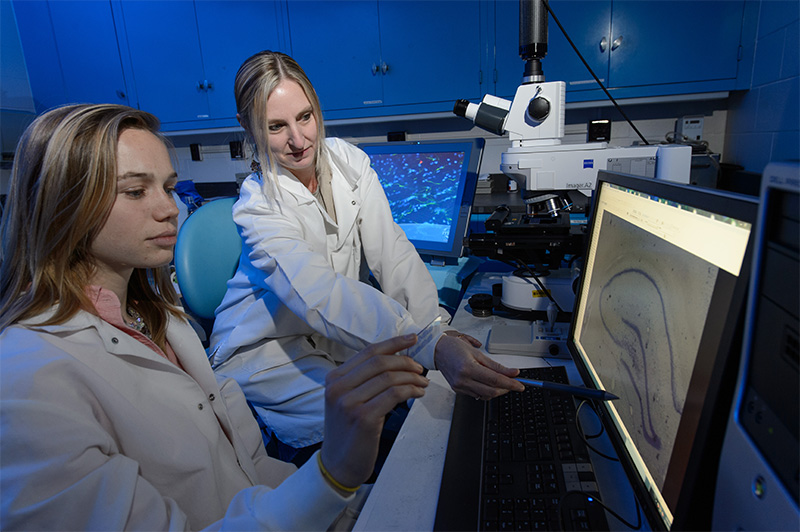
Julia Mertens received her undergraduate degree in Cognitive Sciences and Psychology in 2015. Now, she’s attending Tufts University working towards obtaining her PhD in Psychology and Cognitive Sciences for 2022. I asked her some questions about her experience and current career path with her answers down below.
 How Can You Narrow Down Your Career Options?
How Can You Narrow Down Your Career Options?
There are a multitude of paths students can choose to go down in terms of research opportunities and choices to make beyond graduation, especially in a school as large as the University of Connecticut. Julia got her start in high school, “interested in the mechanisms behind behavior” and wasn’t aware that Cognitive Science was its own field until she became aware of the class availability one semester. Finding a major that suits your interest doesn’t have to be a difficult process, and as Julia stated, “she worked [her] way backward” and found what she was passionate about.
How Do You Know If Grad School is Right For You?
In her own words, Julia simply put that the best reason to get your PhD is learning for the sake of learning and “for the sake of your mental health you have to be genuinely interested in what you’re studying”. All of your time will be devoted to the ins and outs of your chosen subject so make your decision based on your own personal interests. It’s common to question how relevant one’s undergraduate degree is and the subsequent area of study they may decide to pursue. According to Julia, “it’s helpful to have an undergraduate degree in the field you enter” but it’s not necessary so take pride in your area of study!
How Does Your Degree Help You in Your Day-to-Day Life?
As an undergraduate, Julia was heavily involved as a research assistant in the Computational Cognitive Neuroscience of Language and Child Language Laboratories and advises that those interested in graduate school consider experiences in a research lab. Diving into any long term project requires time and devotion and it’s important that every student is aware. Not only does research prepare students for the rigor of graduate school, and introduces a set of applicable skills, but meaningful connections can be made with fellow students and faculty. Dr. Letitia Naigles, the PI of the UConn Child Language Laboratory, “was pivotal in getting [Julia] her first job as a research assistant after college”. Reach out and get involved!
What Happens After Graduate School?
In terms of her plans after graduation, Julia hasn’t quite decided yet but is spending her time developing as many transferable skills as possible with many different industries at her fingertips such as academia and research, data science, etc. Additionally, one of the most important questions involves the weight of a Liberal Arts degree and what it carries in today’s modern world. It’s easy to “underestimate soft skills”, and having the ability to understand abstract concepts, evaluate multiple sources of evidence and communicate effectively is vital and is harnessed throughout the process of obtaining a liberal arts degree.
Any Advice for Current Students?
“Go to your TA’s, drop by workshops, go to the Center for Career Development, etc. Even if you think you can figure out everything by yourself, it’s not selfish to ask for help!”
